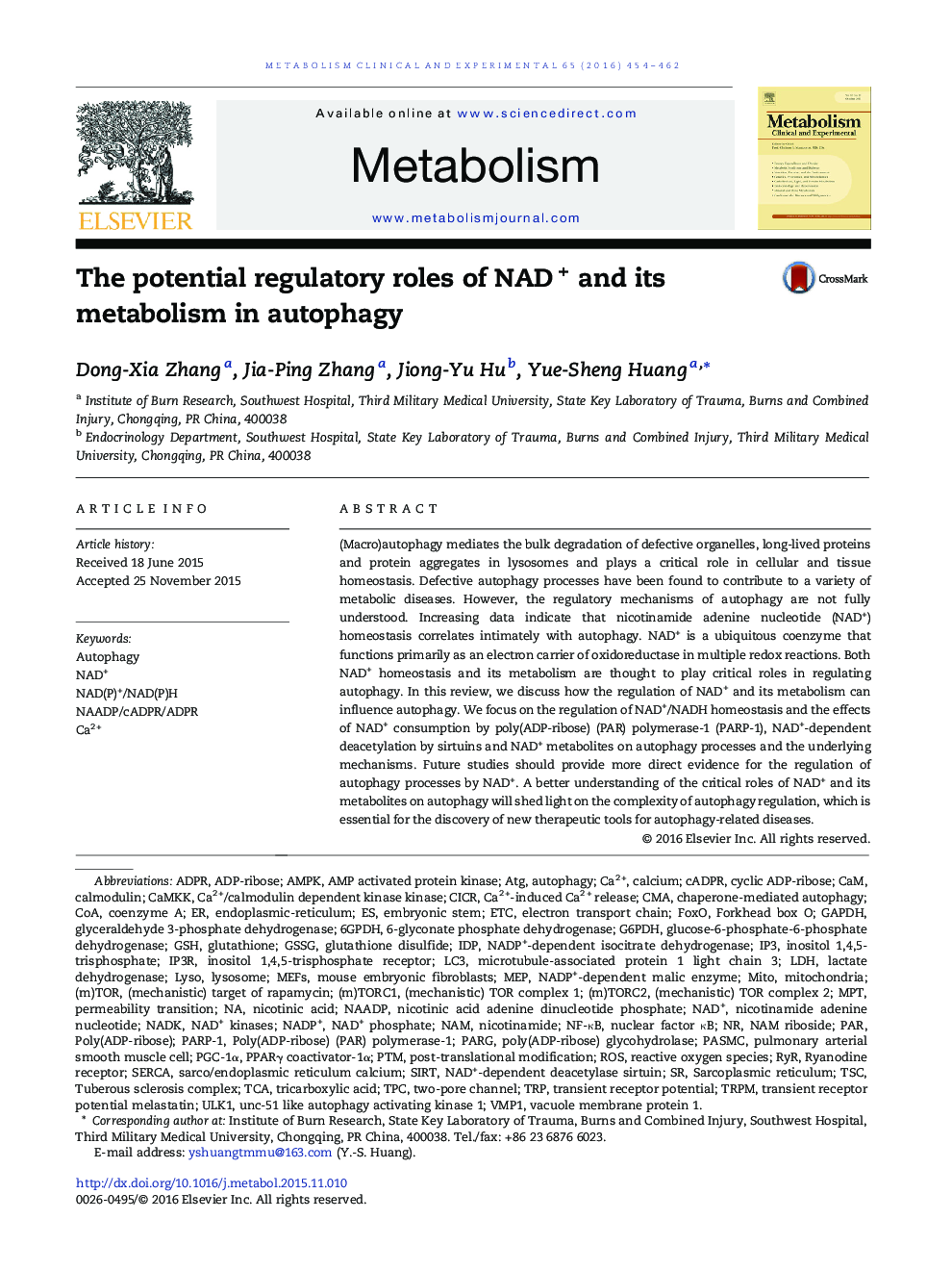| Article ID | Journal | Published Year | Pages | File Type |
|---|---|---|---|---|
| 5903268 | Metabolism | 2016 | 9 Pages |
(Macro)autophagy mediates the bulk degradation of defective organelles, long-lived proteins and protein aggregates in lysosomes and plays a critical role in cellular and tissue homeostasis. Defective autophagy processes have been found to contribute to a variety of metabolic diseases. However, the regulatory mechanisms of autophagy are not fully understood. Increasing data indicate that nicotinamide adenine nucleotide (NAD+) homeostasis correlates intimately with autophagy. NAD+ is a ubiquitous coenzyme that functions primarily as an electron carrier of oxidoreductase in multiple redox reactions. Both NAD+ homeostasis and its metabolism are thought to play critical roles in regulating autophagy. In this review, we discuss how the regulation of NAD+ and its metabolism can influence autophagy. We focus on the regulation of NAD+/NADH homeostasis and the effects of NAD+ consumption by poly(ADP-ribose) (PAR) polymerase-1 (PARP-1), NAD+-dependent deacetylation by sirtuins and NAD+ metabolites on autophagy processes and the underlying mechanisms. Future studies should provide more direct evidence for the regulation of autophagy processes by NAD+. A better understanding of the critical roles of NAD+ and its metabolites on autophagy will shed light on the complexity of autophagy regulation, which is essential for the discovery of new therapeutic tools for autophagy-related diseases.
